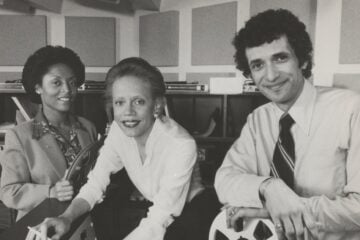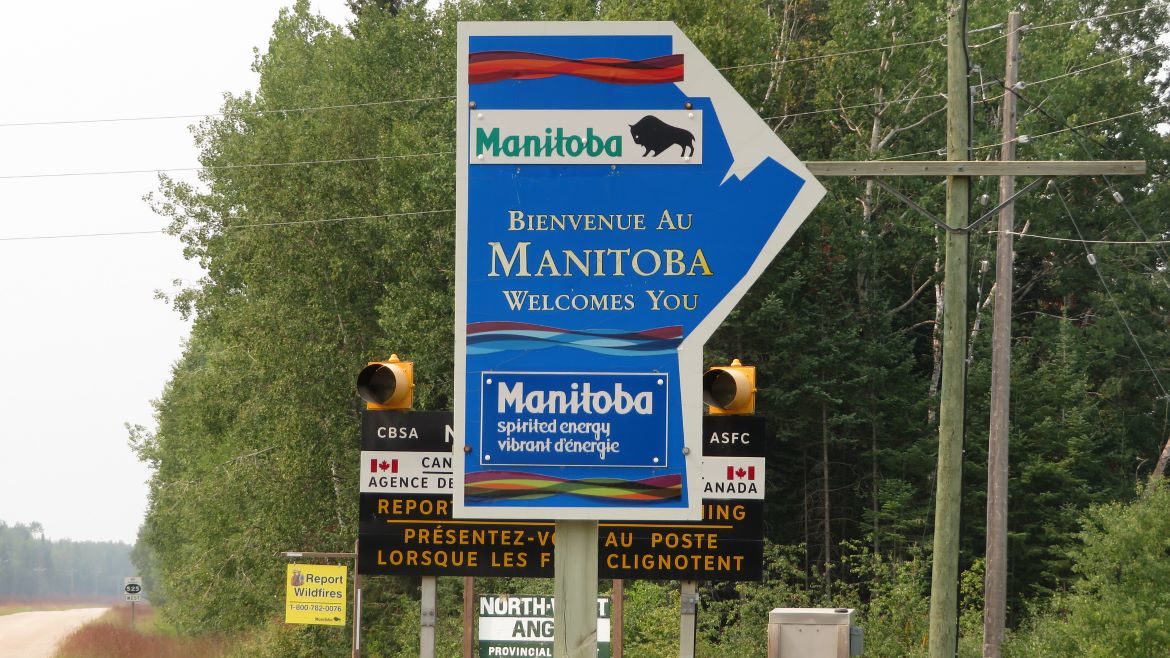Stations find no easy replacements for soon-to-be-canceled Tell Me More
The cancellation of NPR’s Tell Me More is leaving pubradio program directors struggling to fill the gap left by the show, which presented diverse viewpoints that some programmers say will be difficult to replace.
Program directors still have a month to come up with an hourlong replacement. Tell Me More goes off the air Aug. 1, a victim of budget cuts at NPR and its limited reach through carriage on 136 NPR stations. Its core constituency within NPR’s membership consists of stations licensed to historically black colleges and universities and other stations seeking to reach minority listeners.

(Source: Act 1 based on Nielsen Audio Nationwide, Fall 2013, persons 12 and older, provided by NPR.)
According to fall 2013 audience data released by NPR, Tell Me More had an average–quarter-hour audience of 161,000 and a weekly cume of just over 1 million listeners. Meanwhile, the midday program On Point, produced by Boston’s WBUR and carried by 212 stations, registered an AQH of 279,600 and weekly cume of 1.6 million. The Diane Rehm Show, produced at WAMU in Washington, D.C., and WBUR’s Here & Now dominate the daypart.
Hosted by Michel Martin, Tell Me More focuses on news and topical issues with perspectives provided by and for people of color. NPR launched it in 2007 as part of a push to create programs that were relevant and engaging to minorities. The show’s cancellation, announced May 20, was part of an ongoing effort to balance the network’s budget by October 2015.
Announcing the show’s cancellation, NPR leaders signaled a change in their approach to serving minority audiences. “The media landscape is very different from when the show launched,” said Kinsey Wilson, chief content officer. “The ability to reach a diverse audience is also different from seven years ago. But what we’re saying is, we’re not stepping away from our commitment to reach a diverse audience. We’ve got to come at it from a different angle.”
When the show goes off the air, Martin will work with an editorial team headed by Carline Watson, Tell Me More’s e.p., to produce content for NPR’s newsmagazines, which reach millions more listeners on a weekly basis.
The cancellation prompted a flood of angry responses from listeners, according to NPR Ombudsman Edward Schumacher-Matos, who wrote about reactions to the cancellation in a June 30 column. Others expressed concerns that NPR is abandoning its primary tool for engaging minority listeners.
“When a program goes away, that’s when you learn how valued it was,” said Lynne Clendenin, v.p. of programming for Oregon Public Broadcasting. “And judging by the outpouring, this show was very valued.”
According to listener demographics released by NPR, the audience for NPR News programs is 87 percent white, 6 percent Latino, 5 percent black and 5 percent Asian. Though Tell Me More was created in part to help bring more minority listeners to public radio, its audience was overwhelmingly white, according to Schumacher-Matos.
For stations that serve minority populations, the show’s cancellation is a major loss. “It’s kind of disheartening,” said Lackisha Freeman, g.m. of WNCU-FM in Durham, N.C. “Michel was able to offer a different perspective culturally. She was able to dispatch her journalistic abilities across the board, and the show will be missed.”
Supporters say Tell Me More’s impact was broader than its Arbitron ratings indicated.
“There is no program being produced that can truly replace Tell Me More and what we were hoping to accomplish with it,” said Robert Peterson III, director of radio programming and operations at St. Louis Public Radio. “It’s a five-day-a-week, hourlong show, and the reality is that we are having to find something that will fit in with the timeslot rather than replace Tell Me More.” The station recently opted to place the Canadian Broadcasting Corp.’s Q with Jian Ghomeshi to fill Tell Me More’s 7 p.m. weekday slot.
According to Freeman, Tell Me More serves as a central news program for WNCU, a jazz station licensed to North Carolina Central University. Rather than replace it with another talk show, WNCU will add another hour of jazz music to the schedule.
“We’re kind of left in a situation where we’re asking, ‘What do we do now?’” Freeman said. “Thankfully, we do have the fallback of putting music back on at that time. But it’s disheartening and a little unnerving that we don’t have another show we can just plug in like Tell Me More.”
Arthur Cohen, president of the Public Radio Program Directors Association, said that obstacles hindered Tell Me More’s growth, including its narrower focus and midday airtime.
“A big part of the problem is what happens when you try to do any program that’s too focused, especially in the daytime,” Cohen said. “It’s hard for program directors to get clearance for an hourlong show in the middle of the day with a topical focus.”
Meanwhile, public radio stations in major markets that could have provided a ratings boost by picking up Tell Me More are instead producing their own midday shows, Cohen said. “That’s been the consistent dilemma,” he said.
What to air?
Alcorn State University licensee WPRC-FM in Lorman, Miss., now airs Tell Me More at 10 a.m. weekdays among its mix of music and news/talk programs. The station’s audience is 90 percent African-American and lives mostly in rural areas, said General Manager Jerry Komia Domatob. Still evaluating what to schedule in its place, the station is leaning away from a music program.
“We will most likely get a local talk show to fill the slot, but I really wish it could find some way to continue,” Domatob said. “If the stations want to keep it going, we should look for a way to make that happen.”
WDDE-FM in Dover, Del., which is celebrating its second anniversary on the air, is another outlet seeking a replacement for _Tell Me More, _which airs at 3 p.m. Monday through Thursday. The station already airs BBC programming in mornings, and George Boosey, a North Carolina–based consultant who directs programming for the station, plans to place another BBC news show in Tell Me More‘s slot.
“We have it already in the lineup,” Boosey said, referring to BBC programming. “. . . It will give us some consistency in voice.”
OPB’s Clendenin has yet to decide how to replace Tell Me More. “There is no real program out there that’s yelling to me at the moment,” she said. “It’s hard to find something along the same lines, but I’ve been getting a lot of calls about other shows. Suddenly, I’ve become very popular.”
Representatives of the Canadian Broadcasting Corp.’s Day 6 with Brent Bambury and WBUR’s On Point have contacted OPB, but the network is taking time to review its schedule before making a decision.
At Triple A station WUKY in Lexington, Ky., music will replace Tell Me More. “We are very disappointed the show is going away,” said Tom Godell, g.m. “There really is no replacement for it.”
The station has been working to meet diversity goals among its staff and programming, and losing Tell Me More will have a big impact on how it can achieve them going forward, Godell said. “Tell Me More was tied very closely to our goals of increased diversity,” he said. “So replacing it is going to be difficult.”








Perhaps NPR could devote some time in their regular programming to the needs and interests of African-Americans and other under served groups of people.
I realize that might cut into stale reruns of Click and Clack laughing at their own decade old jokes and some of Peter Sagal’s poop humor on “Wait Wait… Don’t Tell Me” but you’ve got to sacrifice something.